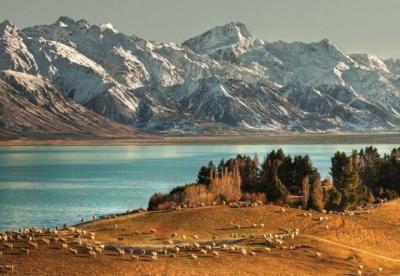From milk and merino to wine and tourism, a new book talks about how New Zealanders are transforming how we make a living off our land.
The New Biological Economy is the second book that has come out of a project funded by the Marsden Fund in 2009. The first book Biological Economies: Experimentation and the politics of agri-food frontiers (Routledge Hardback 2016, paperback 2018) had a more academic focus but this one is written for a public audience.
It poses some key questions:
- Do dairy and tourism have a sustainable future?
- Can the primary industries keep growing without destroying the natural world?
- Does the future of New Zealand lie in high tech or in the innovations of a land-based economy?
It explores how high-volume, low value-add industries in New Zealand can continue to grow – and do so sustainably.
"We can do it with merino, we can do it with meat - and to a certain extent we can probably do it with dairy and with tourism as well," co-author and associate investigator Professor Eric Pawson told Kathryn Ryan of RNZ's Nine to Noon.
Co-author and co-principal investigator Professor Richard Le Heron FRSNZ told Nine to Noon that lessons can be learned from the Māori economy.




